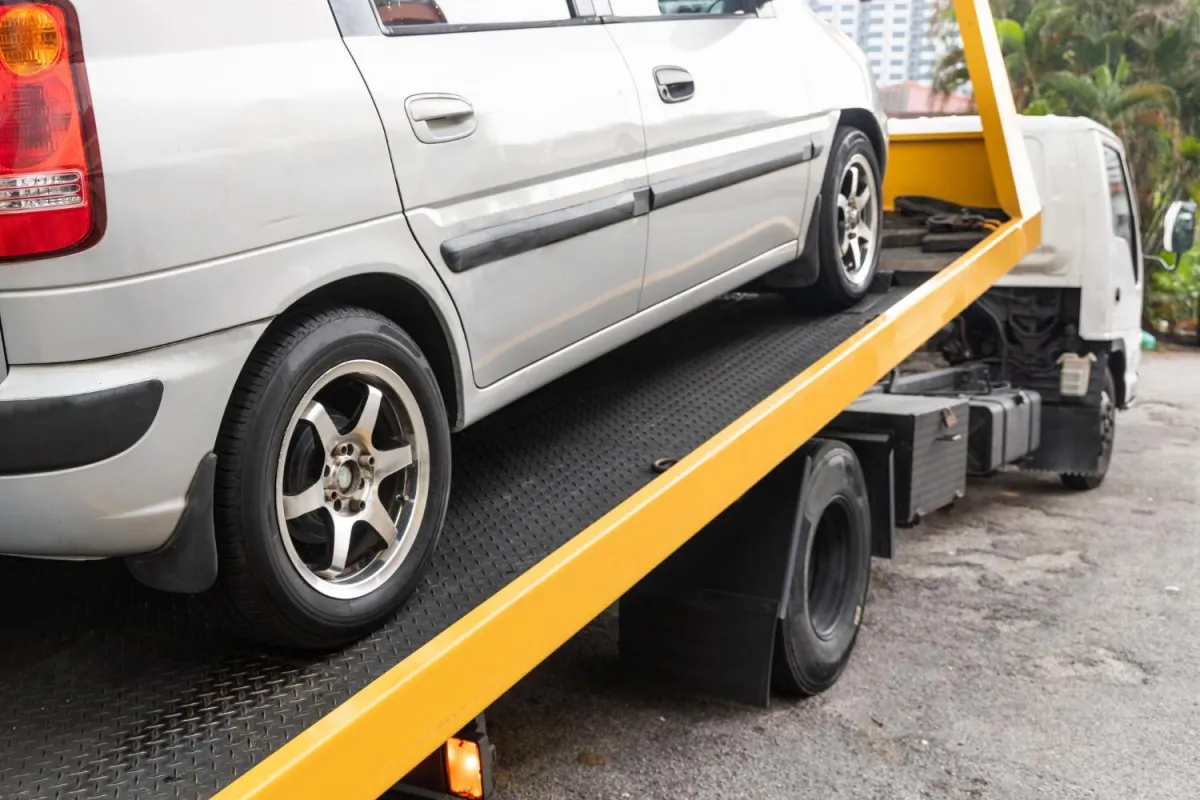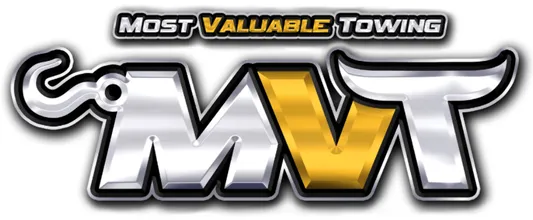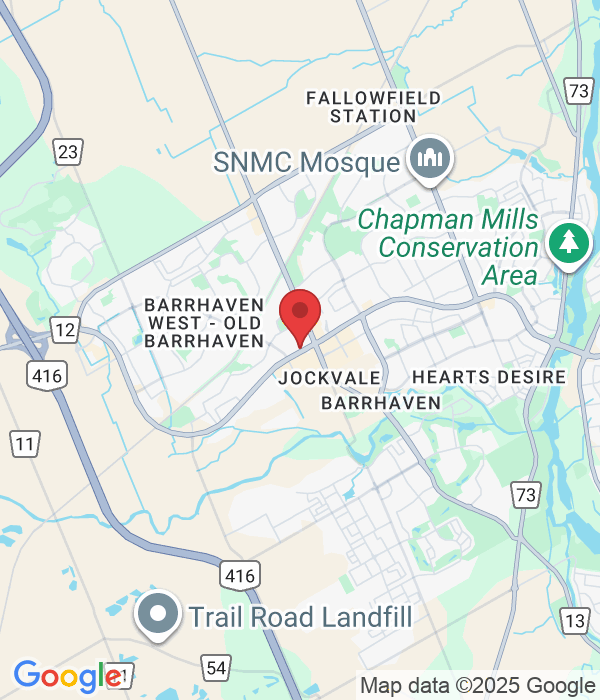Blog

Ottawa Towing Guide: How to Move Heavy Equipment Safely
Moving large equipment around Ottawa takes more than just horsepower. These machines come with size, weight, and safety challenges that regular towing trucks just can’t handle. Whether it's a stalled construction vehicle at a job site or farm equipment that needs relocating, the right gear and crew can make the difference between smooth transport and a costly mess.
Timing also matters. Fall marks one of Ottawa’s busiest seasons for equipment moves before the freeze sets in. Construction, landscaping, and roadwork projects all wrap up ahead of winter, and that means a spike in heavy-duty towing needs. If the towing isn’t done properly, you risk damage to both the vehicle and the road surface—something that matters more than ever as the temperature begins to dip.
Understanding Heavy-Duty Towing
Heavy-duty towing is all about moving large or awkwardly shaped machinery and vehicles that can't be hauled by standard gear. These often include trucks, trailers, buses, construction machines, and even large RVs. The weight and size make them a serious job that involves more planning, stronger tools, and proper handling.
In Ottawa, it's common to see heavy-duty towing used for:
- Stalled highway transport trucks towing cargo
- Farm tractors getting relocated for seasonal work
- Broken-down cement mixers in construction zones
- Transit or tour buses stuck due to mechanical issues
- Municipal vehicles, like garbage trucks or snowplows, being taken for repairs
Each one of these situations poses different challenges. Some require wheel lifts or boom systems, while others involve pulling machines from soft or uneven ground. Add in road closings, tight urban corners, or equipment stuck in remote spots, and it becomes clear why specialized towing is needed—not just to move the load but to do so safely and legally.
Ottawa towing teams often deal with poor visibility, narrow city routes, or vehicles jammed in busy intersections. These scenarios demand quick thinking and the right technical gear. Mistakes can lead to damaged axles, shattered hydraulics, or blocked roads. That kind of risk is what heavy-duty towing is built to avoid, by giving operators proper control from start to finish.
Key Equipment for Moving Large Loads
Towing a compact car is one thing. Handling a city snowplow or a double-axle dump truck is something else entirely. The right towing equipment needs to be built to handle extreme weight, offset loads, and unusual setups like long arms or trailers still hitched to tractors.
Here are the tools most often used for large equipment moves in Ottawa:
1. Rotators – These rigs have cranes that can swivel 360 degrees, making them perfect for lifting or shifting overweight vehicles stuck off the road or on uneven terrain.
2. Boom lifts – Strong hydraulic arms built onto the truck frame, used to stabilize or lift one end of the load while positioning it for rollback or wheel-lift towing.
3. Heavy-duty flatbeds – These are far more reinforced than standard ones, built to carry large machines like bulldozers, pavers, or oversized utility vans.
4. Air cushions – Inflatable tools placed under rolled or capsized equipment to gently lift it upright without scraping the surface or breaking fragile sections.
5. Wheel lifts and underlifts – These tools work together to hook and tow large vehicles by their axles, often keeping their wheels off the road when needed.
Each tool serves a different purpose, but all of them aim to reduce stress on the machinery and roadways. In city cores like downtown Ottawa, gear also has to fit within tight zones without disturbing traffic or damaging sidewalks. That’s where having the right fit—and knowing when to use what—becomes the real strength of a heavy-duty towing setup. Without it, even a short move can turn into a long delay.
Safety Precautions During Heavy-Duty Towing
Safety isn't just a step in the process. It has to be part of every move, from planning to drop-off. Moving large equipment in Ottawa means dealing with tight laneways, road closures, unpredictable drivers, and weather that can turn any job into a hazard. That's why securing the load and checking all systems isn't something to leave until the last minute.
Operators need to double-check everything before starting to tow. That includes inspecting tyres, hydraulic systems, hook points, and straps. One loose hook or weak harness can quickly become a road hazard, especially during rush hour.
Here are a few quick safety tips for heavy-duty towing:
- Always use the right straps, chains, or wheel lifts rated for the machine's size and weight
- Set up proper warning lights and road signage if stopped on or near traffic lanes
- Secure all moving parts on the equipment, such as buckets, blades, or arms
- Watch for sharp turns, steep driveways, and low clearances when planning tow paths in Ottawa
- Avoid towing in poor weather if the roads are slick or icy unless absolutely necessary
With equipment of this size, small mistakes can cause big problems. A backhoe that shifts a few centimetres during transport can snap chains or crush a wheel lift. That’s why safe towing takes more than just experience—it needs a plan that considers terrain, traffic, the weather, and the machine’s specific quirks.
Choosing the Right Towing Service in Ottawa
When the job involves multi-ton equipment, choosing a towing service isn’t just about who gets there first. The right team makes the entire process smoother and more cost-effective. That happens when they show up fully prepared, knowing the kind of job they’re walking into.
Here’s what to look for in a heavy-duty towing service:
1. Towing experience with similar loads – A provider who’s towed graders or cement trucks before knows what to expect and how to handle surprises
2. Well-maintained towing equipment – Working with gear that’s in top condition means less chance of something breaking mid-job
3. Good knowledge of Ottawa roads – Whether it’s avoiding narrow bridges or skipping busy intersections, experience in the city helps cut delays
4. Quick and clear communication – Any delays in updates, route decisions, or timing can waste time and money
5. Legal compliance – Heavy equipment might need permits or travel only during certain hours. A professional service will manage that side of things too
Ask questions before you commit. It’s a strong sign when the team wants detailed info before sending out a truck. If they take the time to learn what type of equipment is being moved, how it's outfitted, and where it’s going, that usually means fewer issues once they’re on site.
Preparing Large Equipment for Transport
Getting the machinery ready ahead of time can lower the chance of problems when the tow truck arrives. Whether it's a snowplow stuck on site or a grader that has to make it across town, prepping the load makes everything more efficient. It also cuts down on potential safety issues during transport.
Start by checking for removable parts like fuel tanks or loose hydraulic arms. These should be secured or removed. Debris like thick mud or loose gravel can fall off during transport and even cause accidents or fines.
Use this checklist to prep your equipment:
- Power off the machine and remove the keys
- Remove or secure any tools or accessories
- Lock down moving parts such as buckets, scoops, or blades
- Check all doors and compartments are shut tightly
- Clean off excess dirt or snow that could fall during transport
- Confirm the equipment’s weight and size meet local travel rules
Making sure everything is locked down and strapped reduces the chance of damage and keeps roads safer for others. Not to mention, it helps the tow team finish the job without delays. That kind of planning shows a bit of care and keeps things rolling more smoothly.
Keeping Ottawa Moving Efficiently
Heavy-duty towing services are a major part of what keeps Ottawa working. With tight deadlines before winter, there’s no room for poor planning or unprepared crews. From hauling a broken-down paver off a job site to handling a stalled municipal truck mid-route, big equipment needs smart handling.
These moves aren’t always easy, but they are necessary. With the right team, equipment, and prep, jobs that once seemed complicated can be completed without added stress or injury. Good towing doesn’t just mean strong trucks. It means careful decisions at every step, from start to finish. When machines get where they need to go safely, work doesn’t stop, deadlines stay on track, and Ottawa keeps moving.
When there's a need to transport large machinery or heavy equipment in Ottawa, choosing the right experts is key. Most Valuable Towing offers skilled professionals ready to handle the job with care and precision. Our team is equipped to ensure your machinery is moved safely and without delays. Learn how we can support your project with reliable heavy-duty towing that keeps things on track.

24 Hours – 7 Days a week
Service Areas In Ottawa, Ontario
Kars
Kenmore
Limoges
Manotick
Metcalfe
Kenmore
Munster
Navan
Nepean
North Gower
Orleans
Osgoode
Ramsayville
Richmond
Rockcliffe
Russell
Rockland
Saint-pascal-baylon
Sarsfield
Stittsville
Vanier
Vars
Westwood
Woodlawn
If you’re ready to be towed currently, please call us directly on 343-503-0866 /
info@ottawatowtruckservice.com
For Bookings and Accounts, please call
Copyright © 2024 Ottawa Tow Truck Service. All Rights Reserved.
